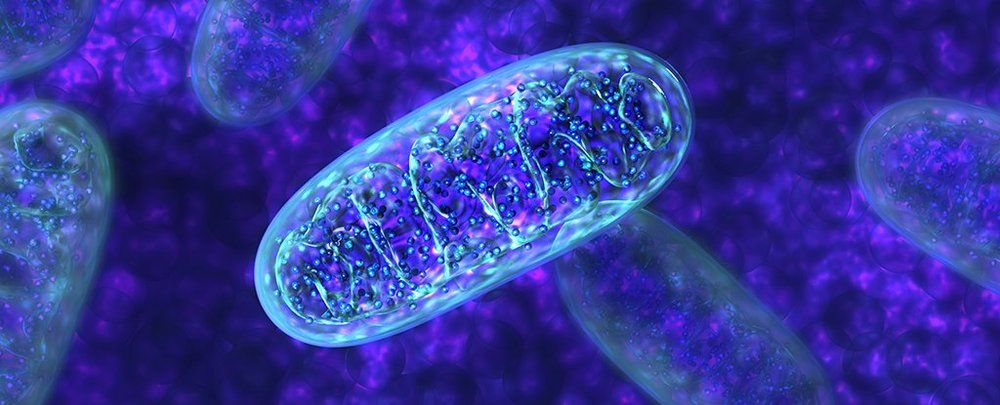The Key to Aging Gracefully with Mitochondrial Dysfunction

Aging is a natural process that every person inevitably experiences. With it comes changes in physical appearance and health that are often unwelcome. Although it is something we cannot halt completely, understanding the process may assist us in slowing down the onset of age-related diseases or even reverse the effects of aging. One of the primary hallmarks of aging is mitochondrial dysfunction. This is a crucial component of aging as it affects energy production and cellular health in our bodies. In this blog, we will discuss mitochondrial dysfunction as a primary hallmark of aging, its causes, how it affects our bodies' energy, and therapeutic interventions that promise to improve mitochondrial function.
What are Mitochondria and Why is it Important
Mitochondria are tiny organelles that are commonly referred to as the "powerhouses" of cells. Their primary function is to convert nutrients into ATP(adenosine triphosphate), which is a form of energy utilized by our cells. Inadequate functioning of mitochondria, therefore, results in a lack of energy, a reducing factor in basal energy, and activity that contributes to aging and a decrease in physical performance. Usual conditions of properly functioning mitochondria involve metabolism, apoptosis, calcium signaling, inflammation, and DNA maintenance, among others.
What is Mitochondrial Dysfunction
Mitochondrial dysfunction results from various factors like environmental stressors, nutrition, and genetic factors. Environmental factors like toxins, poor nutrition, oxidants, and lifestyle factors contribute to gene expression in the nucleus or the mitochondria where mutations in DNA lead to changes in mitochondrial gene expression. Furthermore, with age, there is a gradual accumulation of mitochondrial DNA mutations that lead to mitochondrial dysfunction. The toxins and oxidative stress caused by free radical damage generate an overproduction of reactive oxygen species (ROS), which cause inflammation, cellular damage, and mitochondrial dysfunction.
Why is Mitochondrial Dysfunction so Critical to your Health
Mitochondrial dysfunction has been linked to age-related degenerative diseases, including diabetes, heart disease, and Alzheimer's disease, among others. Deficits in energy production and calcium signaling contribute to these diseases. With the decline in mitochondrial function, age-related diseases become more prevalent, and the aging process accelerates.
Effective Therapies and Nutritional Supplements
Recent studies indicate that several therapeutic interventions can improve mitochondrial dysfunction, slow the aging process, and decrease a chance of disease progression. Exercise is a valuable tool in combating mitochondrial dysfunction as it increases mitochondrial biogenesis and stimulates oxidative phosphorylation to produce more ATP. Intermittent fasting reduces oxidative stress and inflammation, improves mitochondrial health, and initiates the process of mitophagy, which clears damaged mitochondria.

Resveratrol, a natural polyphenol found in grapes, wine, and nuts, has shown promising anti-inflammatory and antioxidant properties associated with mitochondrial dysfunction. Nicotinamide adenine dinucleotide (NAD+) precursor-based therapies, including nicotinamide riboside and nicotinamide mononucleotide, also show promising effects in enhancing mitochondrial function and preventing age-related diseases.
Concluding Remarks
Understanding the significance of mitochondrial function in age-related diseases is crucial, and mitigating mitochondrial dysfunction might improve human health and longevity. The causes of mitochondrial dysfunction are varied and include environmental toxins, poor nutrition, and genetic factors. The effects of mitochondrial dysfunction also contribute to age-related degenerative diseases, including diabetes, heart disease, and Alzheimer's disease, among others. Therefore, various therapeutic interventions can improve mitochondrial dysfunction, including exercise, intermittent fasting, resveratrol, and NAD+ precursor-based therapies. By taking care of our mitochondria, we can slow the aging process, increase our energy levels, and decrease the likelihood of developing age-related diseases.




